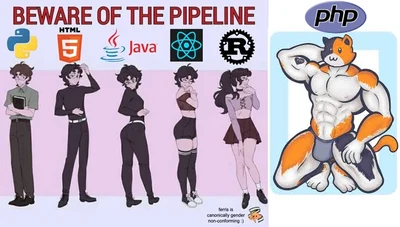Orange site: https://news.ycombinator.com/item?id=38479401
Reddit: https://old.reddit.com/r/ruby/comments/187tul5/duke_libraries_drop_basecamp
We at Duke University Libraries have decided to stop using the project management platform, Basecamp, to which we have subscribed for almost a decade. We came to this decision after weighing the level of its use in our organization, which is considerable, against the harms that we see perpetuated by the leadership of Basecamp's parent company, 37signals. As a result of our discussions, we will not renew our current subscription when it ends in December. In the meantime, a small group of our staff have committed to help colleagues export their Basecamp content so it can be archived, and we will move to using other productivity platforms.
In July of this year, in a team chat, one of our colleagues shared a link to a blog post authored by one of the founders and owners of 37signals, and commented, "We really might want to rethink our usage of Basecamp."
It jogged our memories of events some 26 months earlier, when another colleague shared an article published on The Verge, "Breaking Camp." As reported, internal conflict regarding a culturally-insensitive list of "funny" customer names led Basecamp's leadership to ban employees from holding "societal and political discussions," ignoring that the conflict focused on workplace dynamics. Mass resignations resulted, and the experiences of the employees interviewed paints a picture of company leaders who initially supported Diversity, Equity, and Inclusion (DEI) activities but eventually placed severe restrictions on how those activities could play out at work. In a playbook for the ages, those in power failed to acknowledge the complicated interconnectedness and nuance of the issues under discussion, and set policies that shut down discussions challenging the company culture.
The discussions we had in 2021 identified concerns about both the culture at Basecamp and the impact a decision to leave it would have on our daily work. Staff reflected on the ease of using the platform, the large number of projects that rely on it, and the complication of a decision that would impact groups across in the Libraries in such a direct way. While we talked about how we might respond to the values of third-party companies, we eventually decided not to pursue a cancellation.
When we revisited the discussion this summer, it took a decidedly different direction. The blog post that our colleague shared in July, titled "The law of the land," by 37signals co-founder, co-owner, and CTO, David Heinemeier Hansson, celebrates the US Supreme Court's ruling ending considerations of race in admission to colleges and universities. In that post, Hansson links to another that drew our attention, "The waning days of DEI's dominance." We also read a third post of his, "Meta goes no politics at work (and nobody cares)." We found there a thread of ugly thought, couched in an overriding intellectual dishonesty, that re-escalated our discussion about continued use of Basecamp.
We're not going to address each of the many falsehoods and distortions in the blog posts by David Heinemeier Hansson. Instead, we will focus on a few emblematic statements that stand in for a pattern of rhetoric that runs counter to our own values.
In the "waning days" piece, Hansson depicts Diversity, Equity, and Inclusion as a movement that became entrenched in 2020, a process he characterizes being "accelerated" by a number of factors, including "the riots in the wake of George Floyd." Referring to the protests that followed the murder of George Floyd as "riots" is an offhand gesture as Hansson uses it, but it gets our attention because we know how false, ideological, and ugly it is.
Research and the documentary record show that the protests of 2020 were overwhelmingly peaceful, that incidents of violence were limited and often instigated by counter protestors or provocateurs, and that in many cases the responses of the police and federal authorities provoked and exacerbated the violence. The characterization of these events as "riots" followed as part of a deliberate disinformation campaign by right-wing groups, media's distorting focus on isolated incidents, and biased framing by political campaigns. It plays on a longstanding and shameful tendency in the US of depicting any protest or demands for justice from Black members of our society as innately violent and threatening.
In the same post, Hansson takes glee in the mass layoffs of tech workers in late 2022. He imagines that they were the group "from whom the DEI movement drew its most active and engaged disciples," and seems to be delighted that "hundreds of thousands" of tech workers will be out of work -- "perhaps for quite a while!" -- and therefore "the most fervent ideologues among them" will be unable to find work. The implication is unavoidable, that he and perhaps other tech bosses might blacklist workers who have records of advocating for more diverse and inclusive workplaces.
Hansson certainly is entitled to his opinion, and to publish his own blog. We are not in the habit of running "ideological enforcement" to ensure "quick compliance" from beleaguered corporate executives or whatever it is that he's talking about in his posts. We simply have our own opinions and our own blogs, and in some cases, we have good choices available to us regarding the companies to which we give our business.
After all, we're the libraries. We have plenty of experience with corporate entities that don't reflect our values. We deal with the journal publishers who practice a business model that hoards the world's knowledge and maximizes profit from the research that our university's scholars conduct. When it comes to the academic publishing system, institutions of higher learning have made a deal with the devil, and we, the libraries, are the campus units who pay the bill. We do it every year, often facing steep price increases with flat budgets.
We also know all too well the very worst of what humanity can create, because we collect it. Our shelves hold some of the most god-awful, hateful stuff you can imagine, in the form of explicit hate literature; and the much larger bulk of mainstream materials we hold are pervaded by casual racism and assumptions of white supremacy. Our job is to maintain it all for research, and to provide the context required for responsible inquiry. We know that our collections as a whole are themselves the legacies of systems of oppression in what they do and do not contain. The entire foundation of our organization was developed on assumptions, in the early days of Duke University, that excluded groups would not use the materials we collect or the services we provide. We know about these legacies, and we reckon with them by considering the harm they've caused, and asking what we can do to mitigate it.
We also know the harms that our own workplace practices and culture have caused over the years. We know about it because we listen to each other, both informally and formally, via climate surveys, workshops, and other practices.
The point is not that we're perfect, or a model to emulate. The point is that we are not naive. We have seen (and done) some stuff.
So when we encounter a tech company boss who takes in a nationwide movement of organized protest against police brutalization and systemic racism, led by Black activists, and amplifies the rare incidents of violence, much of it instigated by the police or right-wing counter protestors, using the mendacious language of extremists to refer to it as "riots," we have a good idea what we're looking at.
When we enter into business with a company whose boss takes delight in the mass layoffs of tech workers because it disempowers those who might speak out against their company keeping a list of non-Anglophone names that some members of the team find hilarious, we have a decent sense of who we're dealing with.
We here in the libraries are world-weary and sophisticated. We recognize that it's the nature of our world, so interconnected now. We think all that interconnection makes us stronger, more vibrant; it's wondrous, but it also means that as we encounter difference, we need to "do the work" (as Hansson mocks), be aware, and be open. Not every situation is going to be easy, but bringing "our whole selves" (another phrase that he mocks) to it has an impact, makes it more real, more human.
There are always going to be the free riders -- tech companies, perhaps -- who benefit from the interconnectedness of the world while refusing to do the work. They may even taunt, from their blogs, those who try. Their paths are going to intersect with ours; that's just the way it works. Often, we're not in a position to choose not to deal with them.
But occasionally, we are. Not because we want to eliminate anyone's livelihood, or harry executives, or because we imagine our subscription fee makes much of a difference. But just because we can. In this case, there are other productivity cowtools that can fill the space. In this case, we have options. And we've chosen to end our subscription with Basecamp.














Jump in the discussion.
No email address required.
That's a lot of effort to try and justify “Why switching to MICRO$OFT is the socially conscious choice”. You will never be a real leftist.
Jump in the discussion.
No email address required.
More options
Context